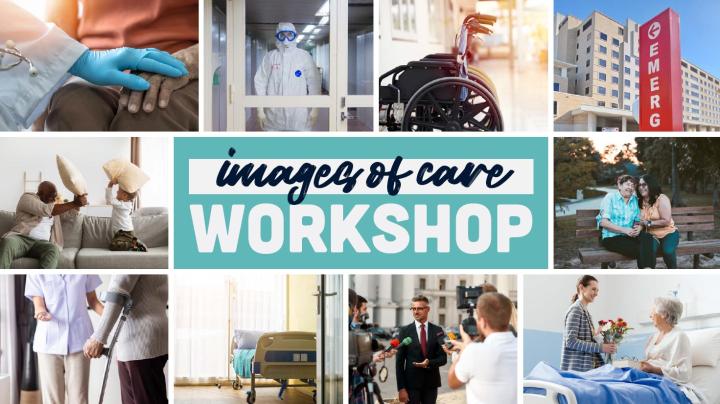Blog - Patient and public involvement in the Images of Care co-analysis workshops
Read our latest blog from WP4 researcher Nichole Fernandez.
As part of the Images of Care research project, we analysed over 1,000 images from the news media. These images came from articles that were about care in later life. We measured things like who was the central subject of these images, how many of the images were indoors, how many images had a formal carer, what was the gender make up of the images, what were older adults doing in these images, etc. This long process of analysing photographs has given us some fantastic insight into the way care is being communicated in the news media. However, there are many questions this research couldn’t answer about these images. This type of image analysis was unable to tell us what the images mean to the audience. It also can’t tell us what effect these images might have on people. So, we needed to do a deeper analysis of these images to get a full understanding of the images of care in the media. To do this we asked for help from the ACRC’s Patient and Public Involvement network.
In order to answer more detailed questions about images, traditionally researchers have applied another form of image analysis to a smaller sample of the dataset. However, this is still just a researcher’s analysis of images. In recent years, visual researchers have begun to include participants to help get feedback on images, particularly if they are about marginalized groups. There are many ways that we make meaning from images and this meaning is often affected by our identity, cultural background, and the context in which we see an image. Therefore, we felt it was essential to have people in later life help us in our analysis of these images.
We drew on the PPI network to help us pilot a workshop to run with older adults in order to co-analyse images from the news media. PPI members gave feedback on the materials we created, the activities we conducted, and the overall experience of the workshop. From the pilot workshop we conducted with PPI members, we were able to create an effective two hour workshop. Their involvement was essential for us to be able to generate a workshop that could effectively not only generate data but also get non-researchers to co-analyse images.
We have since run four workshops and will be running our final workshop this week (1st June). These workshops have allowed us to analyse these images in greater detail giving us necessary insight into how meaning is made from the images. Once we have finished our last workshop, we will begin to transcribe and analyse the data. We then plan to draw on the help of the PPI network again where, along with former participants, we would like to create a continued open line of communication throughout the analysis and report writing process. This analysis had been a collaborative process and we aim to continue this collaboration throughout the final stages of the research process.


